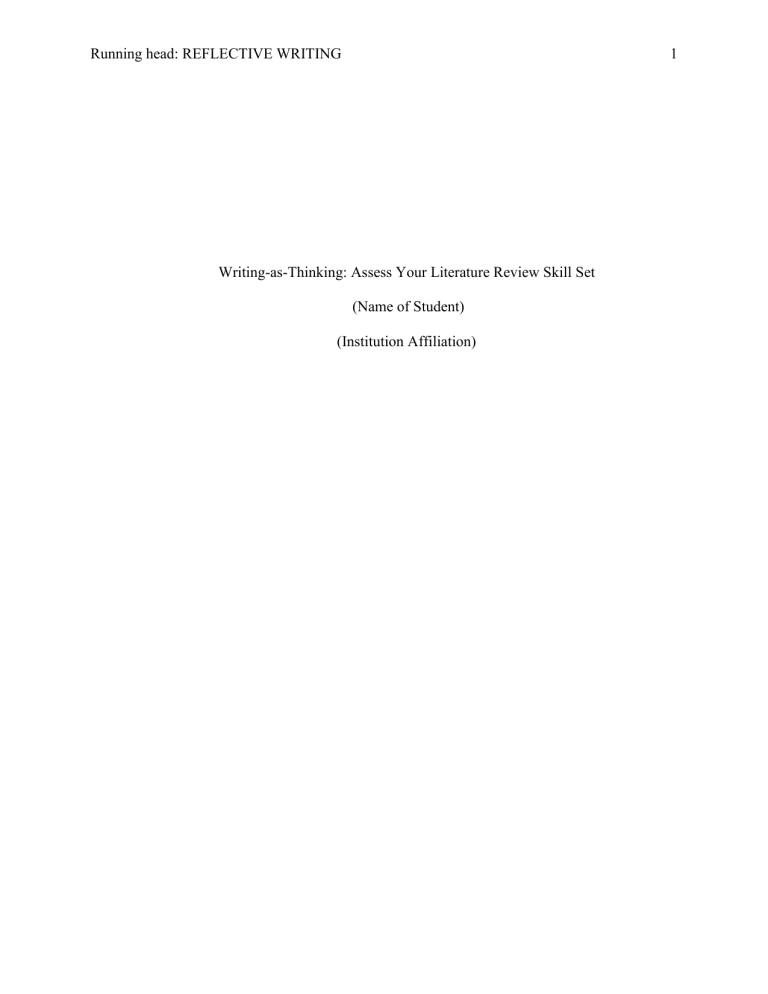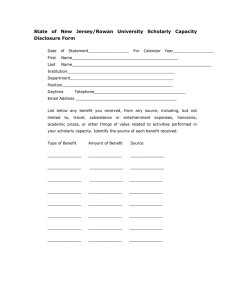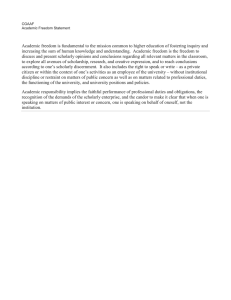
Running head: REFLECTIVE WRITING 1 Writing-as-Thinking: Assess Your Literature Review Skill Set (Name of Student) (Institution Affiliation) REFLECTIVE WRITING 2 Writing-as-Thinking: Assess Your Literature Review Skill Set Convention scholarly literature examination and distinction with other writing forms. Basically, the literature review is an overview of what has been written by other scholars regarding the study topic in question. In the event that the audience of one’s work does not vividly comprehend the topic, it is the author’s responsibility to be more instructional and shed light on the problem being addressed. On the other hand, there exists a situation where the audience is more familiar with the topic. Therefore, as a writer one should demonstrate familiarity and intelligence coupled with expertise on the topic. Literature review differs from other forms of scholarly writing where you have to find sources, review them, and then analyzing before evaluating the information. In simple words, the literature review is a critical review of a topic in question. Empirical research literature verses non-scientific grey literature. There are two broad categories of literature review namely the theoretical and empirical types. In the latter case, the information provided is based on observations or experimentation. Therefore, there must be a previous research case that was investigated. In the study, research questions or hypotheses are usually stated in which the end results will be investigated. However, grey literature is usually non-scholarly and may be either published or not. Nonetheless, grey literature is necessary when writing a scholarly literature review because some needed information might be available. For instance, government reports can provide relevant data regarding the study topic. It is worth to note that even though the grey literature might be unpublished but it harbors sufficient quality information for reference. Effective literature review search strategies. It is widely acknowledged that the main purpose of the literature review is to identify REFLECTIVE WRITING 2 knowledge gaps and ideas that other researchers have presented on the topic of interest. As a result, there are four approved ways of how literature review search should be conducted. The first step is to define the topic after careful consideration where it should be narrow. Secondly, one should explore the past scholarly literature and evaluating the strengths and weaknesses. It is also important that the sources chosen have a significant contribution to the current topic. Having said that, it is now time to compile the information acquired and the next step would be to write the literature by following headings and sub-headings. Development of advanced scholarly writing in the educational environment. In academic writing, the researcher must be so keen and be able to define the intellectual boundary. It is also worth to note that the area of expertise should be adhered to and accorded the seriousness it deserves. More often than not, one should deeply and critically focus on the subject matter. Scholarly writing should, therefore, depend on the available methodological framework and the audience. Furthermore, the latter kind of writing is formal and logical. A Logical flow of ideas and coherence in the information is a prerequisite for good scholarly writing. The main point is that scholarly writing is always evidence-based and thesis-driven coupled with higher-order thinking. Empirical and theoretical literature in scholarly problem study. As has already been mentioned, empirical research is based on evidence-based research methods. Nonetheless, theoretical literature is based on grey literature where there are no hypotheses nor research questions. In scholarly literature review writing, it is important that information from both the latter literature sources be synthesized and critically evaluated. Literature from both sources is vital and helps in bringing up the underlying matters under study. The problem in the topic is usually well addressed by looking at past scholarly studies. Also, REFLECTIVE WRITING vital supporting information from grey literature such conferences proceedings cannot be overlooked. 2


